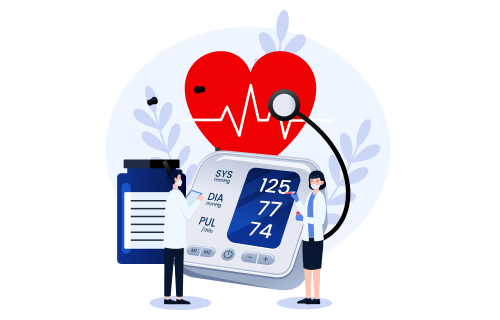Cardiologists are medical doctors who specialize in diagnosing, treating, and preventing diseases of the heart and blood vessels. Because the field of cardiology is vast, different doctors focus on specific areas. This is why, when you find someone who aligns with your situation, it becomes a practical step toward managing your heart health. Here is more information on finding a good cardiologist:
Identify Your Needs
Before you begin your search for a cardiologist, it is helpful to outline your specific health concerns and personal preferences. Your primary care physician may provide a referral, so you can start there for guidance. Documenting your symptoms, family medical history, and any existing conditions will prepare you for your first appointment and help the specialist understand your unique situation from the start.
A good cardiologist should be open when discussing your health, and building a trustworthy relationship is key. Begin by researching specialists who are covered by your insurance plan. While reviews and recommendations are valuable, it is helpful to choose someone who aligns with your specific medical needs and communication style.
Determine Their Specialties
Different cardiologists have training in specific areas of heart health. Some doctors focus on heart rhythm problems, while others may specialize in issues with your heart’s structure or function, so you will want to match their expertise with your needs. Learning about these subspecialties narrows your options, helping you find a physician with relevant expertise.
You can look for a doctor’s credentials and specialty information on hospital websites or healthcare provider directories. An interventional cardiologist performs procedures like angioplasty and stenting, while a preventive cardiologist focuses on patients with risk factors. Understanding these distinctions allows you to make a more informed choice about your care. Some areas of focus within cardiology include:
- General cardiology: For broad diagnosis and management.
- Interventional cardiology: For catheter-based treatments.
- Advanced heart failure: For complex heart failure management.
Ask About On-site Testing
In-office diagnostic testing offers convenience and may expedite your diagnosis and treatment plan. When you inquire about a new cardiologist’s practice, ask which diagnostic services are performed at their location. Having access to tests like electrocardiograms (ECGs), echocardiograms, and stress tests in one place streamlines the process, removing the need to schedule separate appointments at different facilities.
Utilize Telehealth Options
Many cardiology practices now offer telehealth appointments for consultations and follow-up care. These virtual visits allow you to speak with your doctor from the comfort of your home, which is especially useful for managing chronic conditions or reviewing test results. While an in-person examination is helpful, telehealth provides a flexible way to maintain regular contact with your healthcare provider.
Visit a Cardiologist Today
Finding the right cardiologist is a methodical process of matching your health requirements with a specialist’s expertise. You prepare by listing your symptoms, and you confirm that their practice offers the services you need. Taking these organized steps will guide you toward a provider who can address your specific cardiovascular health concerns. If you are ready to take the next step in managing your heart health, schedule a consultation with a cardiologist today.
Social Sharing
Your Content Goes Here
Latest Posts





